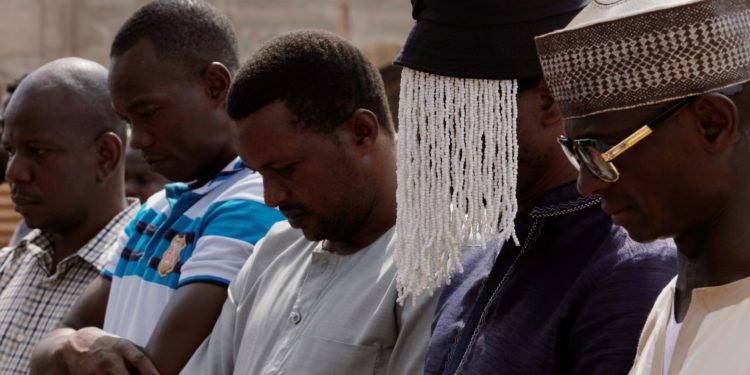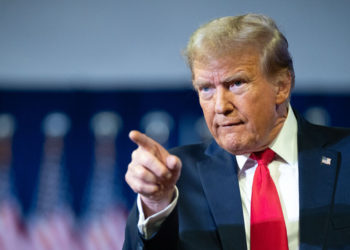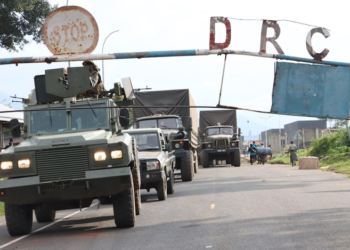By AL JAZEERA
Accra, Ghana – Edward Adeti has been on the run since 2019.
That year, the young Ghanaian investigative journalist uncovered how a Chinese mining firm plotted with a senior judge to dismiss a case about gold theft from an Australian mine in northern Ghana. A government minister, a friend of the said judge, called Adeti having got wind of the yet-to-be-published story, to bribe him to drop it.
Adeti captured the conversation with him on tape and leaked it alongside the story in the Daily Dispatch, the newspaper he worked for, leading to the minister’s eventual resignation in April 2019.
Since then, there have been threats on the journalist’s life, forcing him and his family to flee their home in Bolgatanga – 768km (477 miles) from the capital, Accra – in Ghana’s north. His house was burgled, rooms stripped bare, and his belongings taken away by unknown intruders.
“It’s very unsafe doing this job in Ghana,” Adeti told Al Jazeera from his hideout. “I have to disguise myself before I can step out. I left the region because police detectives hinted to me that they have picked signals that people are planning to eliminate me.”
In Ghana, free expression has long been a cornerstone of its vibrant democracy but there has been a surge in attacks on journalists by political actors and security agencies ahead of the 2024 general elections. These attacks range from physical assaults to intimidation and cyber-threats and have cast a shadow over the West African nation’s commitment to media freedom.
Season of intimidation
According to the Ghana Journalists Association (GJA), there were a total of 45 documented cases of attacks against journalists and media institutions from 2019 to 2023. Investigative journalist Ahmed Suale, an associate of globally acclaimed award-winning Ghanaian undercover reporter Anas Aremeyaw Anas, was killed in 2019 after a series of stories exposing traffickers, corrupt football officials, and high court judges. The police are yet to make any arrests linked to the crime or conclude on the cases involving attacks on journalists. Anas himself has also escaped several assassination attempts.
“This is how the job is going to be,” Adeti continued in an undertone. “But I love what I do. Perhaps, I will die in the line of duty; [but] nobody wants to die this way, especially when this work doesn’t bring any money or any reward.”
In September, during a protest against economic hardship in the oil-and-gold-rich country, the police maltreated and arrested at least 15 journalists and moved them to the police station in a pick-up vehicle guarded by heavily armed officers. They were released after a few hours, following an intervention by the journalists’ union.
The year 2023 witnessed the highest number of annual cases, with four of the nine cases reported in October. That month, a group of 17 youths linked to the governing New Patriotic Party (NPP) attacked the studios of Accra-based private United Television over the composition of a show’s panel. They were later convicted and fined 2,400 Ghanaian cedis ($203) each.
For the second consecutive year, Ghana experienced a decline in the yearly global press freedom rankings published by Reporters Without Borders (RSF). The country dropped two positions, from 60th in 2022 to 62nd in the 2023 rankings.
Among the most recent incidents, Accra-based Citi FM reporter Akosua Otchere was physically assaulted by opposition National Democratic Congress (NDC) supporters in October while covering an event in the party office. Her phone was also seized by party supporters.
Several journalists who had been recently attacked, declined to speak to Al Jazeera, worried about likely victimisation.
Going ‘beyond control’
As Ghana prepares for the 2024 elections, there are concerns that without independent reporting, citizens may be denied necessary information to make informed judgements, compromising the democratic process.
The two leading political parties have denounced attacks on the press, as has the Ghanaian government. President Nana Akufo-Addo has also said he prefers a “noisy, boisterous, sometimes scandalous media of today to the monotonous praise-singing sycophantic one of yesteryear”.
In May 2021, the government opened the Coordinated Mechanism on the Safety of Journalists office under the National Media Commission – a state body tasked with filing and investigating complaints of attacks against journalists.
Information Minister Kojo Oppong Nkrumah, a former broadcaster, concerned about the trend of assaults, urged journalists to report such incidents.
He told Al Jazeera that the government is committed to creating an environment where journalists can “work without fear of attacks”, and urged judges to deliver stringent punishment against perpetrators to serve as a detriment to others.
However, observers say it is all talk and no action from the Ghanaian government as previous attacks have barely been investigated.
“Ghana’s leadership have so far failed to take the necessary actions to ensure security forces do not perpetrate violence against journalists,” Angela Quintal, Africa programme coordinator for Committee to Protect Journalists (CPJ), said in a statement last October referencing the detention of Akyemansa FM broadcaster Nicholas Morkah by six soldiers that month.
Kofi Yeboah, the general secretary of the GJA, the umbrella body of journalists, warned that the trend could reach alarming proportions in the new year.
“In the run-up to 2024 [election] … it is important we address these issues now … We don’t want to have a situation which will go beyond control,” he told Al Jazeera.
Such actions under an administration whose high-ranking members have previously boasted about championing civil liberties during the era of military rule, violate the rights of journalists and erode public trust in state institutions, Yeboah said.
An increasing number of the union’s members have left journalism for public relations, he added. “This is undermining our watchdog role to ensure accountability … journalists can’t just be covering official events. So, we are losing our critical voice and mandates [in the media space],” the GJA scribe told Al Jazeera.
In 2019, the Accra-based Media Foundation for West Africa (MFWA) had to ship out investigative journalist Manasseh Azure Awuni to safety in South Africa following a threat on his life by political actors. This was after he released a documentary reporting that a private entity was training a pro-government militia group at the Osu Castle, the former seat of government.
Muheeb Saeed, manager of MFWA’s Freedom of Expression programme, told Al Jazeera that incidents like this made the press watchdog concerned about the future of the media in Ghana.
“If nothing is done, it’s really going to affect the ability of the media to cover the elections effectively,” he said. “I think that the administration has been relatively repressive and has been able to cow a lot of journalists … and I would cite the fact that even a journalist as big as Anas Aremeyaw has come under so much pressure that over the past few years we haven’t seen so much about him,” said Saeed.
Meanwhile, Adeti remains in hiding.
“I feel sorry for my family,” he told Al Jazeera. “I have apologised to them for making them unsafe because of what I do. I feel tracked. I feel stuck … when I get into the room and I lock the door behind myself, I see it as another miracle; I’ve survived another day.”







Discussion about this post